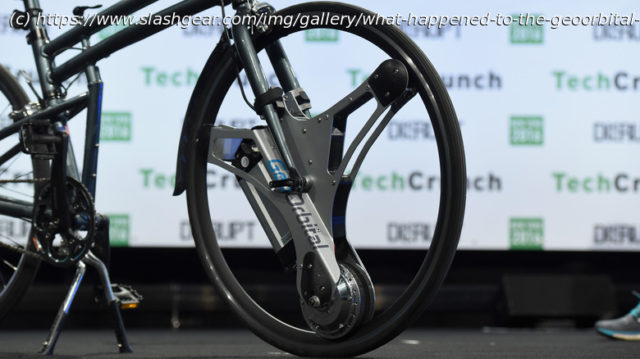GeoOrbital wanted to revolutionize e-bikes by augmenting conventional bikes in a surprisingly simple way, but its stardom may have been short-lived.
“Shark Tank” aired the seventh episode of its ninth season, and the most memorable product pitched that week was the GeoOrbital Wheel from Dakota Decker and Michael Burtov of Cambridge, Massachusetts. Though they also showed off a standalone option for $1,150, which Kevin and Barbara each purchased for themselves, their primary business was a $950 replacement wheel for standard bicycles that turned them into e-bikes.
Burtov told Dig Boston in 2015 that the idea was inspired by his watching the movie “Tron” and noticing that “all that space inside the ‘orbital’ wheel was wasted,” so “why not put all sorts of components inside that empty space [and create a] wheel that doesn’t spin around a hub, but orbits around a central mass.”
Without any technological background, he needed help, which was where Decker came in as Chief Technology Officer. In the months leading up to their “Shark Tank” segment, GeoOrbital had raised over $1.26 million on Kickstarter, and according to an SEC filing, already had distribution with Best Buy.How did GeoOrbital do on the show?
GeoOrbital’s segment on “Shark Tank” began with a demonstration of how the wheel could be subbed in on a conventional bicycle in under 60 seconds, without the need for any tools. Kevin O’Leary and Barbara Corcoran volunteered to try out bikes that had been outfitted with the GeoOrbital Wheel and appeared to have fun with it. However the Sharks, after appearing impressed by the Kickstarter success, visibly got cold feet as they learned more about the product.
Barbara pointed out that you could easily find a standalone e-bike for under $950, and Decker conceded that they started under $500, but he stressed that the GeoOrbital made for a higher quality e-bike than you could get at the lowest available price points.






